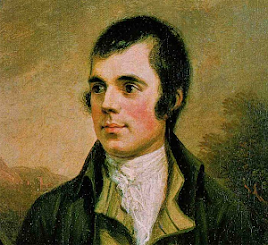Graveyard Poets/Churchyard Poets :
Introduction :
The Graveyard poets also known as Churchyard poets, were a group of 18th century British poets who wrote about death, bereavement, and the afterlife. Their poetry is considered a reaction to the melancholy of the 17th century and is considered of the Romantic movement in English poetry. The poets' work is characterized by gloomy meditations on mortality, such as skulls, coffins, epitaphs, and worms, and is set in the imaginative locale of the graveyard. The poetry's objectives include encouraging readers to consider the brevity of life, the physical and spiritual fate of the departed, and the futility of the human endeavor.
Features of the Graveyard Poets :
- Found inspiration from graveyard
- Poem set in graveyard
- Focus on the lives of ordinary, undignified characters Contributed to the melancholy side of Romanticism
There are many poet's to known as Graveyard Poets.
1) Thomas Gray :

Thomas Gray was born on 26 December 1716 and died on 30 July 1771. He was an English poet. He is widely known for his Elegy Written in a Country Churchyard and published in 1751.
2) William Collins :
William Collins was born on 25 December, 1721 and passed away on 12 June, 1759. He was an English poet and influenced by Thomas Gray. He was famous in 18th century. His lyrical odes mark a progression of Alexander pope's generation of the romantic era.
3) William Cowper :
4) William Blake :
William Blake was born on 28 November 1757 and died on 12 August 1827. William Blake is often associated with the Romantic era rather than as a Graveyard poet. Blake’s work, while occasionally exploring themes of death and mortality, is more distinguished by its visionary and symbolic qualities, often delving into broader spiritual and metaphysical themes. His poems in collections like "Songs of Innocence and of Experience" and "The Marriage of Heaven and Hell" showcase his unique approach to exploring human existence, the divine, and the nature of reality.eyard Poets. His poetry often dealt with personal suffering and the human condition, aligning well with the group's focus on existential themes.
5) Robert Burns :
Robert Burns was horn on 25 January 1759 and passed away on 21 July 1796. He was Scottish poet and lyricist. His works often reflect on the human condition, life, and death with a blend of humor, compassion, and social commentary. For example, his poem "Tam o' Shanter" and other works touch on the inevitability of death and the human experience in a more accessible, often earthy manner. Burns’s contributions lie more in his celebration of Scottish culture, his pioneering use of the Scots language, and his exploration of human emotions and social issues.
References :
“Thomas Gray | English Poet and Elegy Writer.” Encyclopedia Britannica, 26 July 2024, www.britannica.com/biography/Thomas-Gray-English-poet.
W William Collins | English Poet & Romantic Lyricist. (1998, July 20). Encyclopedia Britannica. https://www.britannica.com/biography/William-Collin
"ChatGPT." OpenAI, accessed 3 Aug. 2024, https://www.openai.com/.
“William Cowper | British Poet and Hymn Writer.” Encyclopedia Britannica, 4 May 1999, www.britannica.com/biography/William-Cowper.
---. “William Blake | Biography, Poems, Art, Characteristics, and Facts.” Encyclopedia Britannica, 8 Aug. 2024, www.britannica.com/biography/William-Blake.
https:/
Daiches, David. “Robert Burns | Biography, Poems, Songs, Auld Lang Syne, and Facts.” Encyclopedia Britannica, 17 July 2024, www.britannica.com/biography/Robert-Burns.












.jfif)
No comments:
Post a Comment